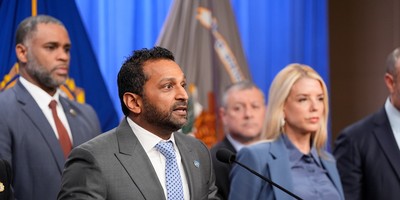Barack Obama and his new Treasury Secretary Timothy Geithner are handing Republicans a golden opportunity to pin down the new administration early in its term. Obama and Geithner will announce a plan today to purchase toxic assets from banks, continuing the policies of their respective predecessors, George W. Bush and Henry Paulson. Opposing this latest socialist effort gives Republicans a rare opportunity to distance themselves from the Bush administration, while challenging Obama on his already stale pledge to change the ways of Washington.

Reeling a bit from having to expend more political capital than anticipated in pushing a stimulus package through Congress, Obama is now increasingly vulnerable to public outrage with Washington interventionism. And for all of Obama’s rhetorical swipes at the policies of George W. Bush, the new President’s response to the economic crisis differs primarily in style at the moment from Bush’s.
The latest plan—which Obama tells us is “comprehensive”—involves several components. One of the main features is the “bad bank,” which is designed to purchase toxic assets from banks and, therefore, remove them from the balance sheets. Of course, this is precisely what the first round of the Troubled Asset Relief Program (TARP) was supposed to accomplish. The new plan, which Obama is calling The Financial Stability Plan, raises as many questions as it answers, such as what constitutes a bad asset; how does the government value the asset; should the asset be purchased for a premium, thus further exposing taxpayers, or a discount, thus causing greater write downs for already weak financial institutions? Financing for the bad bank will come partially from TARP funds and partially, we are told, from the private sector, although the administration has provided little detail as to how that would work. All of these questions are better answered by the market, not the Treasury Department.
The government also plans to inject new cash into the financial sector in return for preferred shares that will convert into common shares in several years. The infusions will come with new strings attached, such as executive compensation limits. The plan will also expand the Federal Reserve Bank’s Term Asset-Backed Securities Loan Facility, which is a federal lending program to finance the private purchase of certain asset-backed securities.
Recommended
And, in what is perhaps the biggest assault on the free market, the plan may allocate up to $100 billion to stem foreclosures. Although the Obama administration has not indicated what this will entail, there is talk of capping borrowers’ monthly payments at 31 percent of their gross income and the government sharing losses with lenders in the event the debtor defaults and the lender has to write down the loan. In this “new era of responsibility,” the government takes responsibility for everyone’s poor decisions.
This new plan represents Washington’s latest effort to use the root causes of an economic crisis to fix that very same economic crisis. The government is prodding the financial industry to start the credit machine again, despite the reluctance of banks to make loans to potentially unqualified borrowers. Rather than allowing the market to establish the value of certain assets and which parties are adequately solvent, the government is trying to convince America that there is a shortcut known as the printing press.
Among the public, there seems to exist a growing sentiment that (a) the economic situation is outrageous, (b) nobody in Washington really knows what they are doing or how to fix the problem, and (c) the government is spending a lot of money bailing out irresponsible parties.
Republicans should stand firm and now and give Barack Obama ownership of this culture of bailouts and spending. They should explain how the government’s nearly $10 trillion in guarantees for which the taxpayer is responsible is far more likely to prolong and exacerbate this crisis, not end it. And they can make great strides in severing the cord with the George Bush Era of government growth and return to being the Party of responsibility and frugality. It is somewhat remarkable that Barack Obama has even given them this chance. Now they need to take it.

























Join the conversation as a VIP Member